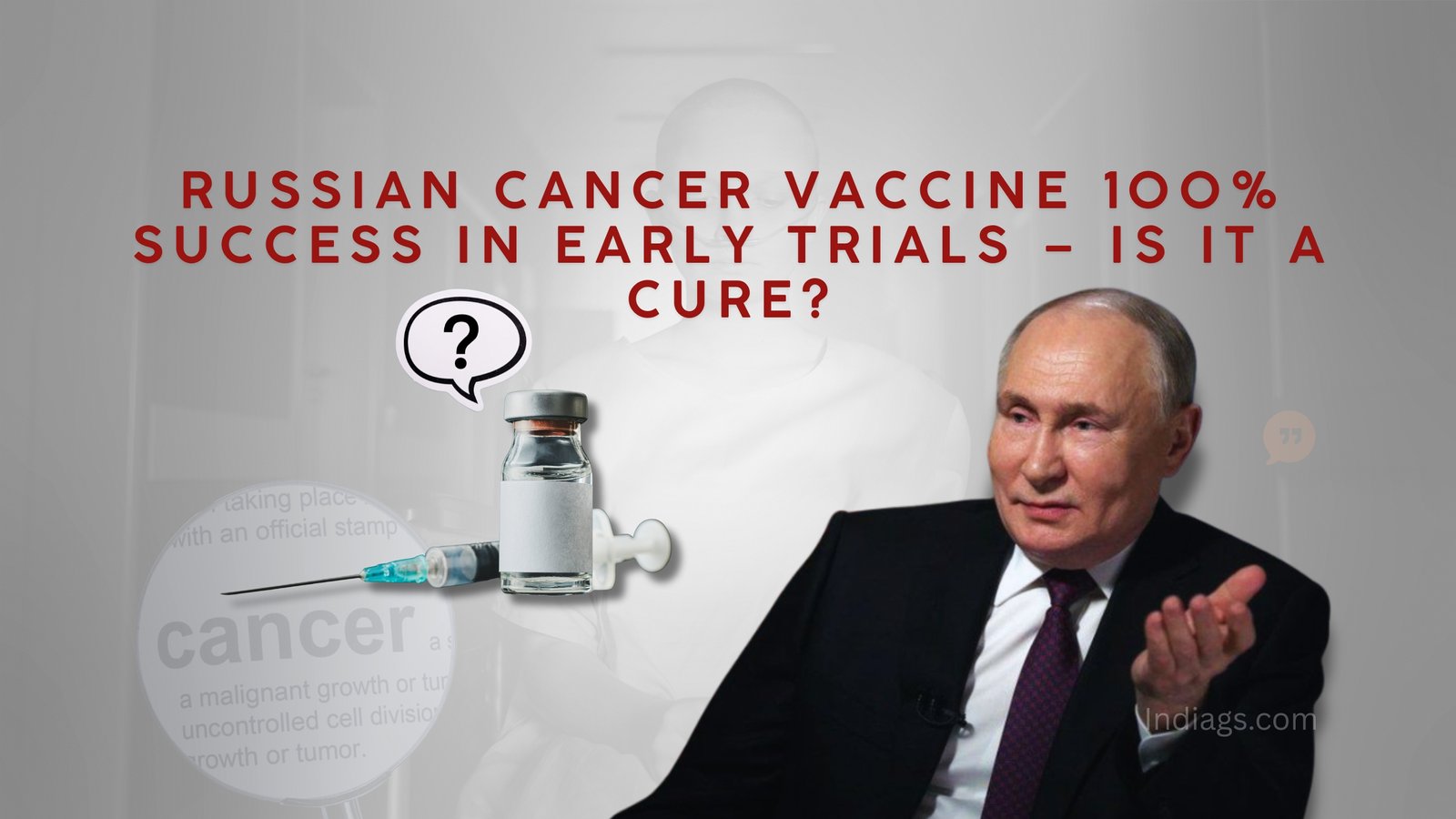Russian-Made Cancer Vaccine Achieves 100% Success Rate in Clinical Trial
From yesterday, when Russia announced the results of the cancer vaccine developed by them, the internet was flooded with this news. Yes, it is great news for humanity, not just for a single country. It seems like a miracle, as until now, no other vaccine has shown such a high success rate. However, make sure to note that this is not yet verified by any official publication.
Key Headlines
- Russian scientists announced a cancer vaccine called enteroMix
- Reportedly developed under the Federal Medical and Biological Agency (FMBA) of Russia
- Media outlets reported it shows 100% efficacy and safety in trials
- Claimed to be the world’s first mRNA-based personalized cancer vaccine
What the Reports Actually Mean
- The 100% success refers to early-stage/preclinical results, not large human trials
- Evidence is mainly from animal models (e.g., colorectal cancer – cancer originating from the rectum or colon)
- Reports suggest Phase 1 clinical trials have just started or are about to start
- Small human cohort (48 participants) has been referenced
- No peer-reviewed publication yet available with full trial data
Two Different Descriptions Reported in the Press
mRNA-Based Personalized Vaccine
- Uses mRNA technology – delivers genetic instructions to cells to produce tumor antigens (neoantigens). The immune system learns to recognize and attack cancer cells.
Viral Immunotherapy (Oncolytic Approach)
Advertisement
- Uses four non-pathogenic viruses. Viruses attack tumor cells directly (oncolysis), and release of tumor fragments stimulates immune activation.
Targeted Cancer Types
- Initially: Colorectal cancer
- Future versions: Glioblastoma (brain cancer), Melanoma, and others
Is the 100% Success Rate Claim Misleading?
What does “100% success” actually mean?
- Could mean no adverse events or side effects
- Could mean all participants mounted an immune response
- Could mean complete tumor clearance in animals
Note:
- None of these outcomes equal a 100% cure for cancer in humans.
- Animal data cannot prove broad human efficacy.
- Many drugs show perfect results in mice but fail in human trials.
Needed Proof Before Claim Becomes Valid
- Trial registry entries with protocol and endpoints
- Independent replication in large groups
- Peer-reviewed publication of results
- Regulatory approvals after rigorous review
Currently, none of these are completed.
Bottom Line - This is promising science, but not yet a proven cure.
Advertisement




